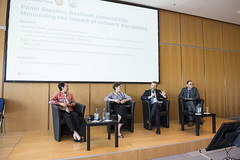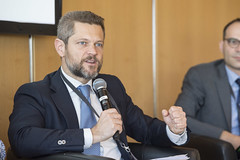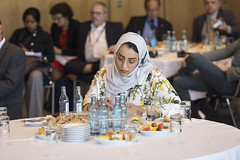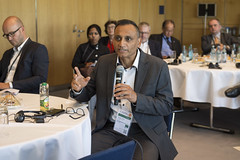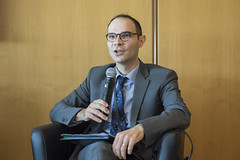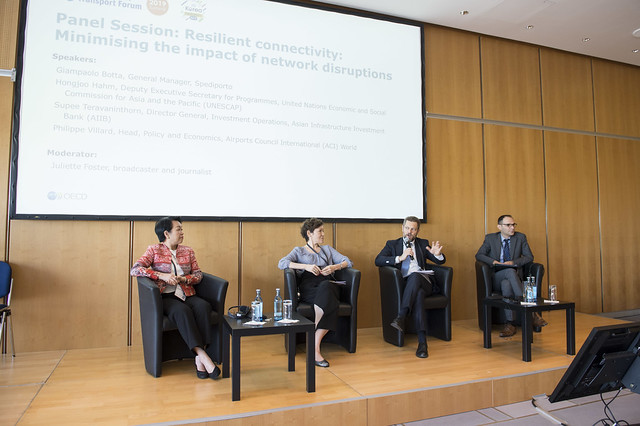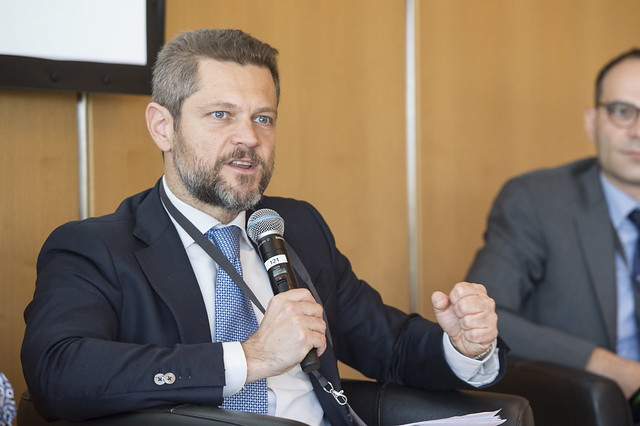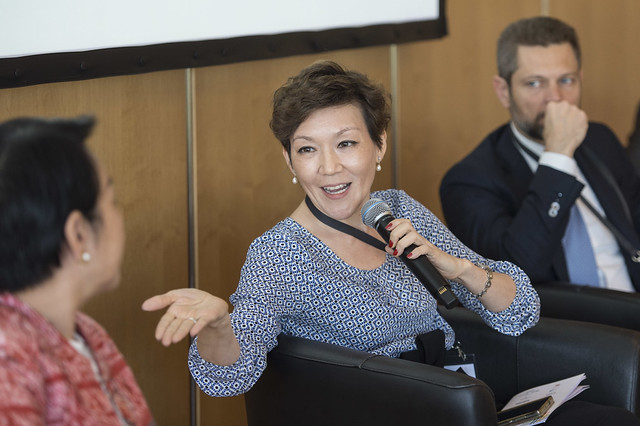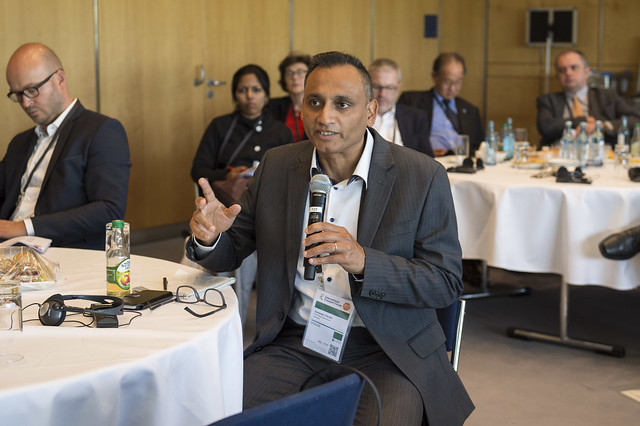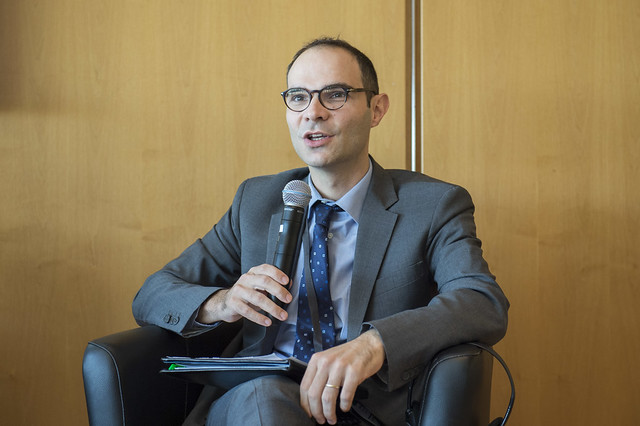Ensuring that transport networks are resilient to disruption is high on policy agendas around the world. Speakers at this session discussed the key challenges to the resilience of multimodal transport networks, as well as best practices and innovations to improve resilience.
Initial discussion focused on establishing a common understanding of the terms transport network, resilience and durability. Philippe Villard noted that two thirds of the world’s airports are loss-making, with 96% having a turnover of fewer than one million passengers per year. Larger airports cross-subsidise smaller ones in the network. This helps to ensure the sustainability of smaller airports and provide greater connectivity for passengers and freight. The speakers agreed that while maintaining physical infrastructure in good condition throughout its life-cycle is highly important, the question of resilience goes beyond this issue. Azhar Jaimurzina noted that resilience is an especially complex issue for developing countries because it is linked to poverty and inequality. Giampaolo Botta highlighted three key elements of resilience: technological resilience, organizational resilience, and infrastructural resilience.
Participants also underscored the importance of digital resilience. Supee Teravaninthorn argued that we are in a new digital era and “if you don’t have digital technologies, you don’t have efficiency”. Conversely, if there is a disruption in the internet network, all services stop. Giampaolo Botta pointed out that investing in data systems and developing systems to manage and digitalize documents to assist the logistics sector is of high importance.
In response to a question from the audience regarding challenges in planning in the face of increasing risks and uncertainties, Philippe Villard stated that regulatory bodies should regulate norms but should not try to regulate exceptions, i.e., cases of disruptions. Supee Teravaninthorn noticed that from the investor perspective there are two major risks: technical and geopolitical. The industry should take care of the former ones and the governments of the latter ones. Azhar Jaimurzina argued the need for risk reduction decisions to be made in the light of a clear understanding of the costs involved: reducing risks to very low levels involves rapidly escalating costs and a conscious balancing of these considerations is essential. The speakers also discussed who pays, and should pay, for resilience. It was agreed that the final incidence of these costs typically lies with the user, or beneficiary.
The Importance of integrated solutions and cooperation was highlighted. Azhar Jaimurzina argued that the construction of new infrastructure should be planned from a whole of network perspective, encompassing all modes and sectors.
Speakers
Speakers
Hongjoo Hahm
Deputy Executive Secetary for Programmes
United Nations Economic and Social Commission for Asia and the Pacific (UNESCAP)


